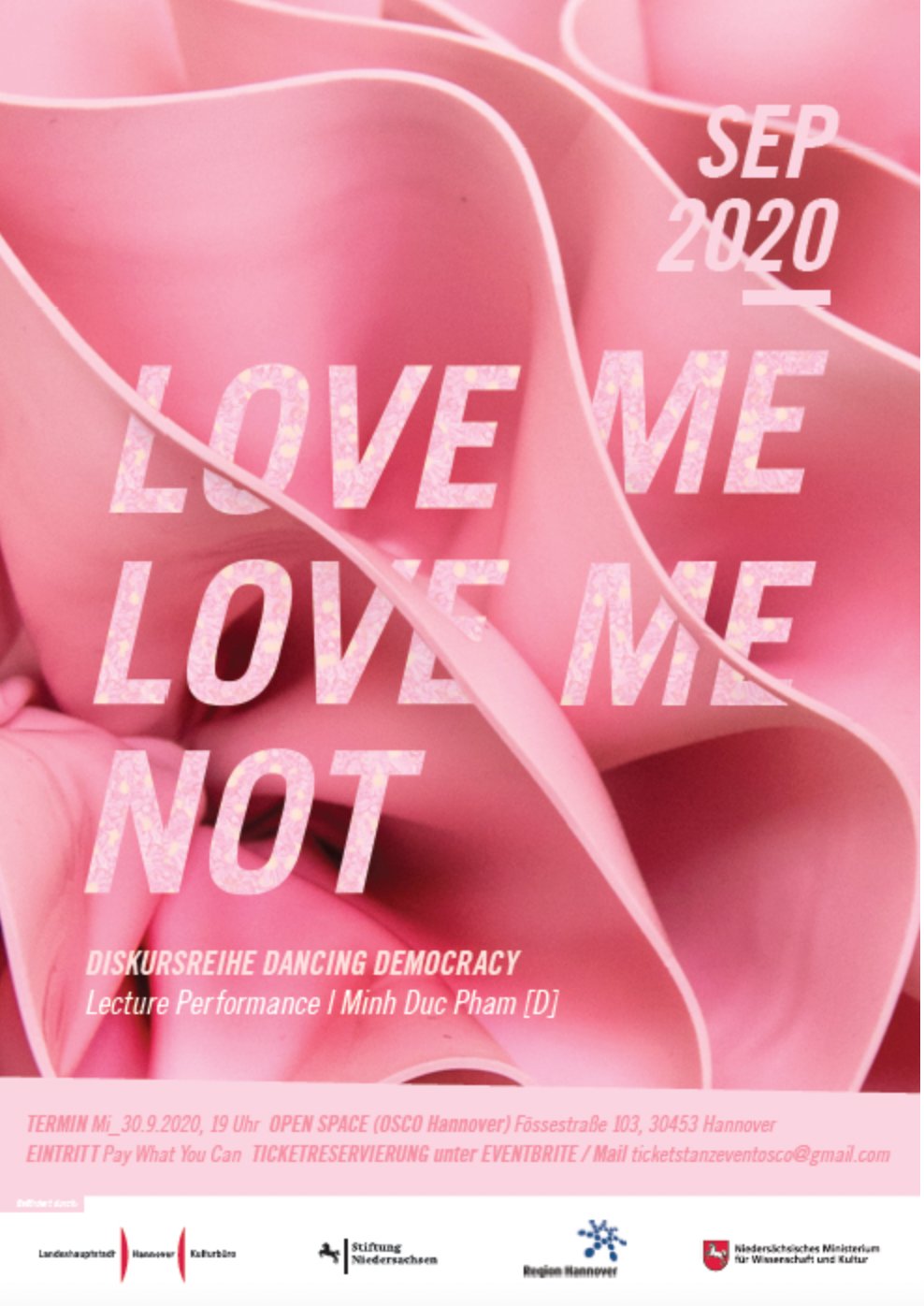Dancing Democracy Performance Lecture Series – On Sami Culture and Post-Migrational Discourses
September / October 2020 _ Dancing Democracy:
The Dancing Democracy performance lecture series aims to share artistic research and discourses.
Conceived within the framework of the dance project Glacial Decay, it is intended to show the audience various artistic approaches by international artists who deal with issues relevant to climate change, identity, belonging and (land rights).
Two invited artist shared their work and research in lecture performances.
German – Vietnamese Artist Minh Duc Pham will be talking about post-migrational discourses as a queer artist focussing on how his various identities are constantly questioned by those around him, aiming to link often unnoticed socio-cultural disruption to unruly ways of remaking the urban fabric at a time of increased nationalism and ecological destruction.
Marit Carlasdotter (Sweden) Humans & Soil is an ongoing collaborative project that explores humans’ relationship to earth from the perspective of native cultures such as; the Sami of the north and the Ainu of Japan.
Our organisation consists of dancers, musicians and writers from Sweden, Saepmie and Hokkaido with the aim to highlight discourses in indigenous cultural policies, non-repatriation of bones and land rights. Trough performance, choreo-activism and artistic processes, we would like to emphasise the misuse of indigenous bodies by acting colonised systems and institutions in Sweden and Japan through showing our art to an inter generational audience. Humans & Soil is currently collaborating with the Nordic Opera and Västerbotten Region to have a residency in Daerna, February 2020, continued collaboration with Sami art-platforms and a presentation at the Sámi Week in Ubmeje, Umeå 2020. In 2019 Marit worked in Hokkaido, Japan with Professor Hiroshi Maruyama and Ainu Womens’ Association in a Sámi – Ainu cultural exchange.
This project was supported by:
Landeshauptstadt Hannover Kulturbüro, Stiftung Niedersachsen, Region Hannover und dem Niedersächsischen Ministerium für Wissenschaft und Kultur
